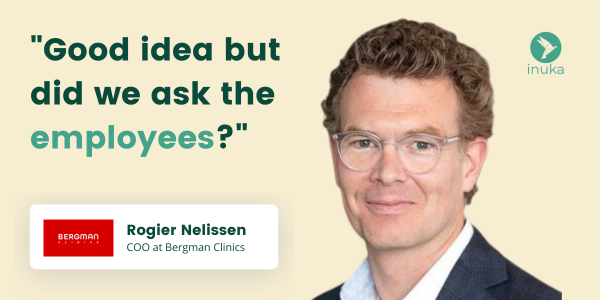The most effective coaching methods for burnout prevention focus on building resilience before exhaustion sets in. Solution-focused coaching, cognitive behavioural techniques, and stress management coaching work better than reactive approaches. These workplace wellbeing coaching strategies address root causes rather than symptoms, helping you create sustainable employee mental health solutions that prevent burnout rather than just treating it.
What exactly is burnout and how do you spot it before it’s too late?
Workplace burnout is a state of physical, emotional, and mental exhaustion caused by prolonged workplace stress. It manifests through three core dimensions: emotional exhaustion (feeling drained and depleted), cynicism (detachment from work and colleagues), and reduced personal efficacy (feeling incompetent and unproductive).
You can spot early warning signs before burnout becomes severe by watching for changes in behaviour and performance. Look for employees who seem constantly tired, become increasingly cynical about work projects, or start questioning their abilities despite previous competence. Physical symptoms include frequent headaches, sleep problems, and getting sick more often.
Other red flags include decreased productivity, missed deadlines from previously reliable team members, increased irritability, and withdrawal from colleagues. Pay attention to employees who stop volunteering for projects, seem disengaged during meetings, or express feelings of being overwhelmed by normal workloads. These early indicators give you the opportunity to intervene with burnout prevention strategies before the situation becomes critical.
Which coaching approaches actually prevent burnout rather than just treating it?
Preventive coaching methods focus on building resilience and coping skills before stress becomes overwhelming. Solution-focused coaching helps employees identify their strengths and develop practical strategies for managing workplace challenges. This approach builds confidence and problem-solving abilities that prevent stress from escalating into burnout.
Cognitive behavioural coaching techniques teach people to recognise and change negative thought patterns that contribute to stress. Instead of waiting for burnout symptoms to appear, this method helps employees reframe challenging situations and develop healthier responses to workplace pressures.
Stress management coaching provides practical tools for handling daily pressures effectively. This includes time management strategies, boundary-setting techniques, and relaxation methods that employees can use proactively. Unlike reactive approaches that address burnout after it occurs, these burnout coaching techniques create sustainable habits that maintain wellbeing.
Resilience-building coaching strengthens employees’ ability to bounce back from setbacks and adapt to change. This preventive approach develops emotional intelligence, communication skills, and self-awareness that serve as protective factors against burnout development.
How do you measure whether your burnout prevention coaching is working?
Track wellbeing indicators through regular employee surveys that measure stress levels, job satisfaction, and engagement scores. Absenteeism rates provide concrete data about coaching effectiveness, as successful burnout prevention typically reduces sick days and unplanned absences. Monitor productivity measures alongside wellbeing metrics to ensure coaching supports both employee health and performance.
Use standardised assessment tools like the Maslach Burnout Inventory or workplace wellbeing questionnaires to establish baseline measurements before coaching begins. Regular pulse surveys help you track progress and identify areas needing additional support.
Employee engagement scores offer valuable insights into coaching impact. Look for improvements in motivation, commitment, and connection to work. These metrics demonstrate ROI by showing how employee mental health coaching translates into business benefits.
Physical health indicators matter too. Track healthcare utilisation, stress-related illness reports, and employee assistance programme usage. Successful coaching programmes typically see reductions in these areas as people develop better coping strategies and stress management skills. Consider conducting an impact check to thoroughly evaluate your coaching programme’s effectiveness.
What makes some employees more resistant to burnout coaching than others?
Individual personality types and past experiences significantly influence coaching receptivity. High achievers and perfectionists often resist coaching because they view seeking help as admitting weakness or failure. Senior employees may feel that participating in wellbeing programmes undermines their authority or suggests they can’t handle their responsibilities.
Mental health stigma remains a barrier for many people, especially in traditional corporate cultures. Some employees worry that engaging with stress management coaching might negatively impact their career prospects or how colleagues perceive their capabilities.
Scepticism about coaching effectiveness can stem from previous negative experiences with workplace initiatives or general mistrust of company-sponsored programmes. People who prefer to handle problems independently may view group coaching sessions or structured support as unnecessary interference.
Cultural backgrounds and generational differences also affect openness to coaching. Adapt your approach by offering multiple engagement options, ensuring confidentiality, and clearly communicating the preventive rather than remedial nature of burnout prevention strategies. Some people respond better to peer support, while others prefer one-on-one sessions or anonymous digital platforms.
How often should burnout prevention coaching sessions happen to be effective?
Effective burnout prevention coaching typically involves weekly sessions initially, then transitions to bi-weekly or monthly meetings as employees develop coping skills. Most programmes see optimal results with 6-12 sessions over 3-6 months, allowing time for skill development and habit formation without overwhelming busy schedules.
Session frequency should match individual needs and risk levels. Employees showing early burnout signs benefit from more intensive support initially, while those participating in preventive programmes can start with less frequent sessions. Each session should last 45-60 minutes to allow meaningful exploration of challenges and strategy development.
Consider offering flexible scheduling options including lunch-time sessions, early morning appointments, or virtual coaching to accommodate different work patterns. Some employees prefer intensive workshops followed by regular check-ins, while others benefit from consistent weekly support.
Budget considerations matter, but remember that prevention costs less than treating full burnout or replacing employees. Many organisations find success with hybrid approaches combining group workshops for skill-building with individual sessions for personalised support. This balances effectiveness with practical workplace constraints while maximising your investment in employee wellbeing coaching.
What’s the difference between burnout coaching and regular performance coaching?
Burnout coaching focuses on wellbeing and stress management, while performance coaching targets skill development and goal achievement. The conversation styles differ significantly: burnout coaching emphasises emotional support, self-care, and sustainable work practices, whereas performance coaching concentrates on productivity, efficiency, and career advancement.
The methodologies vary considerably. Workplace wellbeing coaching uses techniques from counselling and psychology to address stress responses and emotional regulation. Performance coaching applies business and leadership development approaches to improve specific competencies and outcomes.
Goals differ fundamentally between these approaches. Burnout prevention coaching aims to reduce stress, improve work-life balance, and build resilience. Performance coaching seeks to enhance skills, increase productivity, and accelerate career progression. The success metrics reflect these different objectives.
Use burnout coaching when employees show signs of stress, disengagement, or overwhelm. Choose performance coaching when people need skill development, career guidance, or goal-setting support. Many employees benefit from both approaches at different times, but it’s important to match the coaching type to current needs rather than assuming one approach fits all situations.
Understanding these distinctions helps you select appropriate coaching interventions and set realistic expectations. Both types of coaching add value to your organisation, but they serve different purposes in supporting employee development and wellbeing.
Implementing effective burnout prevention requires understanding your team’s specific needs and choosing appropriate coaching methods. The key lies in taking a proactive approach that builds resilience before problems develop. By combining solution-focused techniques with regular measurement and flexible delivery options, you can create a workplace culture that supports both wellbeing and performance. At Inuka Coaching, we specialise in evidence-based coaching solutions that help organisations prevent burnout while building stronger, more resilient teams using our proven Inuka method.







